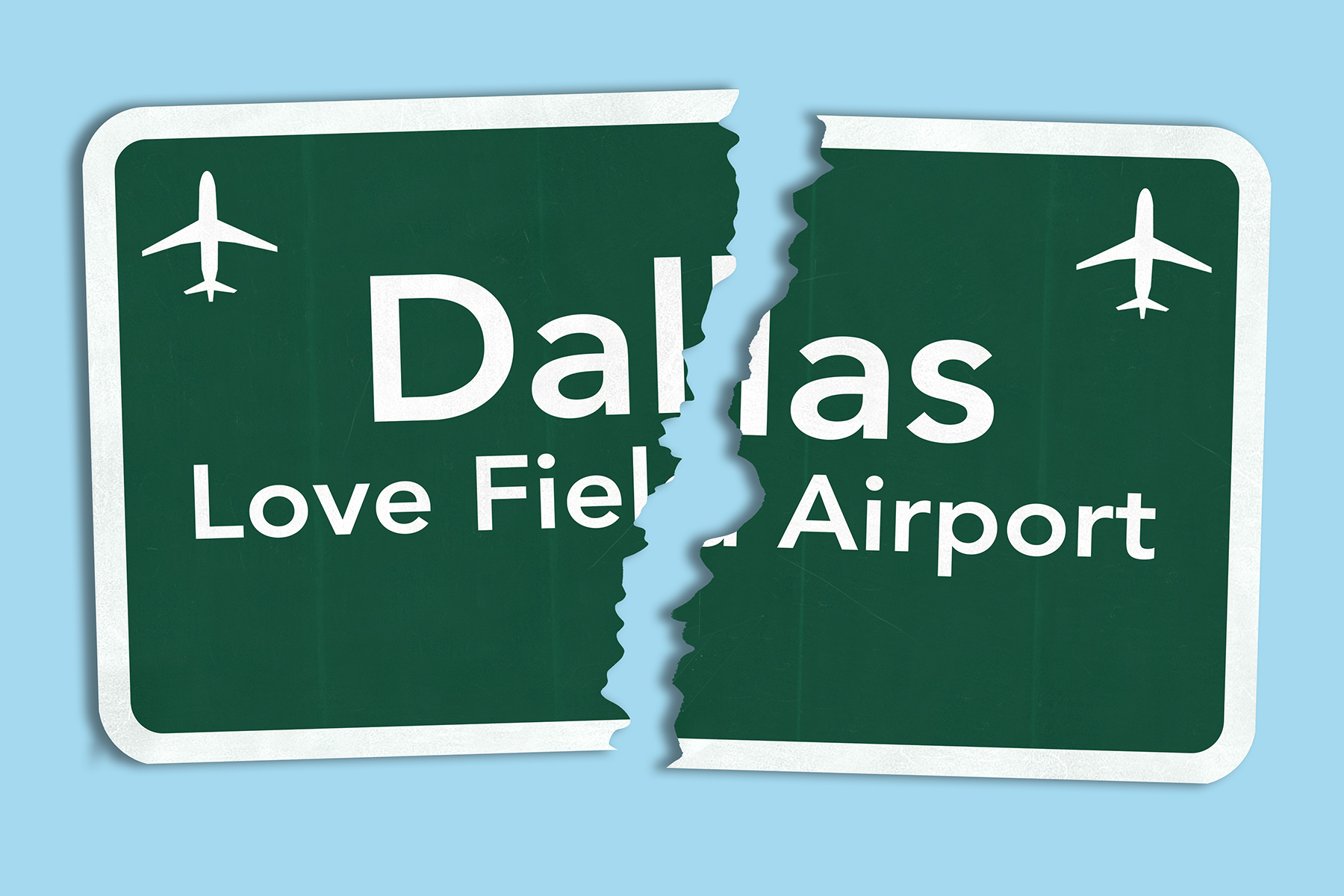The tussling over limited gate space at city-owned Dallas Love Field is starting to resemble the three-way gunfight in “The Good, the Bad and the Ugly”—except with more participants.
In 2015, the city went to federal court to resolve a spat between Atlanta-based Delta Air Lines Inc. and Dallas-based Southwest Airlines Co. over whether Delta could continue to operate five flights a day to Atlanta using gates controlled by Southwest.
It was learned in the course of the first round of court hearings that Southwest—which already controlled 16 of the airport’s 20 gates—acquired rights to two more gates by paying United Airlines Inc. $120 million, in addition to assuming rent payments. Those are the gates Delta was using under a temporary agreement it had signed with United.
U.S. District Judge Ed Kinkeade ruled in early 2016 that Delta could continue flying at the airport while the case was being decided. But he admonished Dallas for failing to craft “any policy, let alone a clear one,” on how the airport would accommodate airlines wanting gate space. “Now in this case the court is asked to follow through with what the city should have done years ago,” the judge wrote.
Choosing late over never, Dallas proposed an accommodation policy this spring that would give Delta three more years to fly its five flights out of Love. Delta could continue service only if Southwest decided not to use its gate space. That is unlikely, considering Southwest has been using its gates to their 10-flights-a-day capacity since shortly after restrictions on nonstop flights nationwide were lifted in 2014.
Not surprisingly, Delta cried foul, complaining in court papers that the city’s proposed policy discriminates “against Delta in favor of Southwest at every turn.”
“No one but this court has the authority, the ability, and the backbone to preserve meaningful competition at Love Field,” the airline’s legal team wrote. “Absent court intervention, Love Field will become Southwest Field, situated at the end of Herb Kelleher Way (formerly Cedar Springs Road).”
Not that Southwest liked the city’s ideas, either. Calling the policy “a day late and a dollar short,” Southwest said in court papers that the city’s “Solomonic” policy conflicts with its lease and federal law. The “most egregious” example, Southwest complained, is that the city will assume the right to adjust an existing airline’s schedule to make room for a new airline.
Alaska Airlines Inc., which controls two gates at Love, piled on as well, saying the city’s policy would discriminate against Alaska by making it, rather than Southwest, the first in line to give up space for new-entry airlines. United and American Airlines Inc., which are named in the lawsuit but currently don’t fly out of Love, made it unanimous and panned the city’s proposal, too.
At present, the gate case is set to go trial in February, but Delta has told the court it would rather see the matter resolved with a hearing and a ruling by the judge. Southwest is advocating for a trial to hometown jurors.
In a recent filing with the court, Southwest suggested its dispute with Delta could easily be solved by October. Advance schedules show that Alaska won’t be using its two gates to capacity this fall, and that Southwest suggests that Delta’s flights could be moved there instead.
As for future disputes, the only other long-term solution besides the city’s is one floated by Kinkeade in his 2016 opinion. The judge described Love as the only airport in the country restricted by Congress to a no-growth policy, which he said is out of date.
Without an end to constraints on additional gates and flights, he said, “Dallas will continue to face dilemmas like this one.” Two years later, the judge’s free-market approach remains an idea whose time has not yet come.
Thomas Korosec is an award-winning journalist who specializes in legal and business topics.







